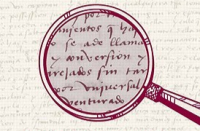Difference between revisions of "LGBTQ Historians"
| (13 intermediate revisions by the same user not shown) | |||
| Line 1: | Line 1: | ||
| + | [[File:LGBTHistorians.png|200px|thumb|left]] | ||
| + | |||
| + | Historians research, analyze and interpret the past, and present their work to a contemporary audience for assessment and action on issues relevant to today. Ideally, this will be in an unbiased and peer-reviewed way. Historians thus provide us with vital information that informs our actions and behaviours. | ||
| + | |||
| + | Successful historians are competent in collecting and evaluating information, analyzing records and data from the past, connecting and linking those together to determine their complex relationships, considering different viewpoints on cause and effect, and interpreting the results to present probable storylines. | ||
| + | |||
| + | Historical studies encompass many areas of research and specialization. These include art, literature, military, social, business, and many more. LGBTQ historians have been a part of this process and contributed to many important insights. | ||
| + | |||
| + | Consider LGBTQ historian [[Michael Howard]] as an example. Widely acknowledged as the greatest English military historian of his time, he not only researched and presented historical military events but also broke new ground by integrating the sociological impact of conflict into the discussion. He went on to receive his country's highest civilian honour, the Order of Merit. | ||
| + | |||
| + | There are many more LGBTQ historians of equal stature and impact. We have been able to identify the following notable historians who identify as LGBTQ. '''This list should be read in conjunction with [[Academics Specializing in the History of the LGBTQ Community]] for completeness.''' | ||
| + | |||
'''Albania''' | '''Albania''' | ||
| Line 46: | Line 58: | ||
* [[James Davidson]] | * [[James Davidson]] | ||
* [[L.S. Alexander Gumby]] | * [[L.S. Alexander Gumby]] | ||
| + | * [[Michael Howard]], military historian | ||
* [[Robert Wyndham Ketton-Cremer]] | * [[Robert Wyndham Ketton-Cremer]] | ||
* [[Roger Lockyer]] | * [[Roger Lockyer]] | ||
| + | * [[Neil MacGregor]], art historian | ||
* [[Jan Morris]] | * [[Jan Morris]] | ||
* [[Alison Oram]] | * [[Alison Oram]] | ||
| Line 77: | Line 91: | ||
* [[Allan Berube]] | * [[Allan Berube]] | ||
| − | * [[John Boswell]] | + | * [[John Boswell]], academic and religious historian |
* [[Eric Cervini]] | * [[Eric Cervini]] | ||
* [[Martin B. Duberman]] | * [[Martin B. Duberman]] | ||
Latest revision as of 12:57, 19 April 2021
Historians research, analyze and interpret the past, and present their work to a contemporary audience for assessment and action on issues relevant to today. Ideally, this will be in an unbiased and peer-reviewed way. Historians thus provide us with vital information that informs our actions and behaviours.
Successful historians are competent in collecting and evaluating information, analyzing records and data from the past, connecting and linking those together to determine their complex relationships, considering different viewpoints on cause and effect, and interpreting the results to present probable storylines.
Historical studies encompass many areas of research and specialization. These include art, literature, military, social, business, and many more. LGBTQ historians have been a part of this process and contributed to many important insights.
Consider LGBTQ historian Michael Howard as an example. Widely acknowledged as the greatest English military historian of his time, he not only researched and presented historical military events but also broke new ground by integrating the sociological impact of conflict into the discussion. He went on to receive his country's highest civilian honour, the Order of Merit.
There are many more LGBTQ historians of equal stature and impact. We have been able to identify the following notable historians who identify as LGBTQ. This list should be read in conjunction with Academics Specializing in the History of the LGBTQ Community for completeness.
Albania
Australia
Brazil
Canada
Colombia
Estonia
France
Germany
Great Britain
- Harold Acton
- Simon Russell Beale
- Justin Bengry
- Matt Cook
- Antony Copley
- James Davidson
- L.S. Alexander Gumby
- Michael Howard, military historian
- Robert Wyndham Ketton-Cremer
- Roger Lockyer
- Neil MacGregor, art historian
- Jan Morris
- Alison Oram
- David Starkey
- John Addington Symonds
- Trevor Thomas
- Amy Tooth
- Stephen Wall
- Veronica Wedgwood
India
Norway
Poland
Spain
United States
- Allan Berube
- John Boswell, academic and religious historian
- Eric Cervini
- Martin B. Duberman
- Jack Fritscher
- Harlan Greene
- L.S. Alexander Gumby
- Drewey Wayne Gunn
- Andrea Jenkins
- Eric Marcus
- Laurie Marhoefer
- Jenni Olson
- Cindy Patton
- James Polchin
- Jennifer Pritzker
- Vito Russo
- Hugh Ryan
- James T. Sears
- Marc Stein
- Perry Dean Young
See Also
- Academics Specializing in the History of the LGBTQ Community
- LGBTQ Leaders in Higher Education
- LGBTQ Librarians and Archivists
- LGBTQ Curators at Museums and Art Galleries
- School Teachers, Researchers and Education Staff Who Identify as LGBTQ

